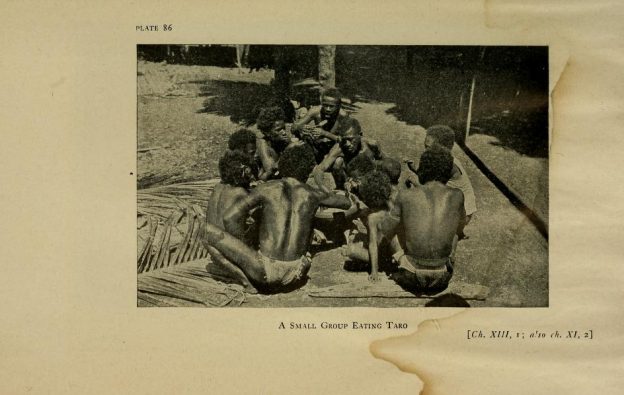While I was investigating the first comprehensive study in English on Marquis de Sade, The Revolutionary Ideas of the Marquis de Sade (1934) by Geoffrey Gorer, I stumbled upon this quote:
“The natives of the Trobriand Islands […] consider eating as private as any other bodily function.”
I’d heard this before but never before had I considered the rather obvious link to the food taboo scene in Luis Buñuel‘s The Phantom of Liberty.
I started to investigate.
Wikipedia has it wrong, it attributes the following citation to a certain Jenefer Shute, who obviously copied it from here:
“Given the social importance of food, it might seem strange to discover that the Trobrianders eat alone, retiring to their own hearths with their portions, turning their backs on one another and eating rapidly for fear of being observed.” —Consuming Passions: The Anthropology of Eating (1980), p. 8-9, Peter Farb, George J. Armelagos
Now, there is only one anthropologist associated with the Trobriand Islands and that is Bronisław Malinowski.
First I found this in a 1958 issue of The Humanist:
“B. Malinowski in his opus magnum reports that in the Trobriands males and females may have premarital sexual intercourse but never must they be seen eating together.”
I then combed through the three books on the Trobriand Islands and eventually found this in The Sexual Life of Savages in North-Western Melanesia:
“Food is displayed in all forms and on all occasions […] yet meals are never taken in public, and eating is altogether regarded as a rather dangerous and delicate act […] the custom of eating in common is limited […] people retire to their own fireplaces with their portion, each group turning its back on the rest […] they eat rapidly, no one else witnessing the performance […].”
Voila.

